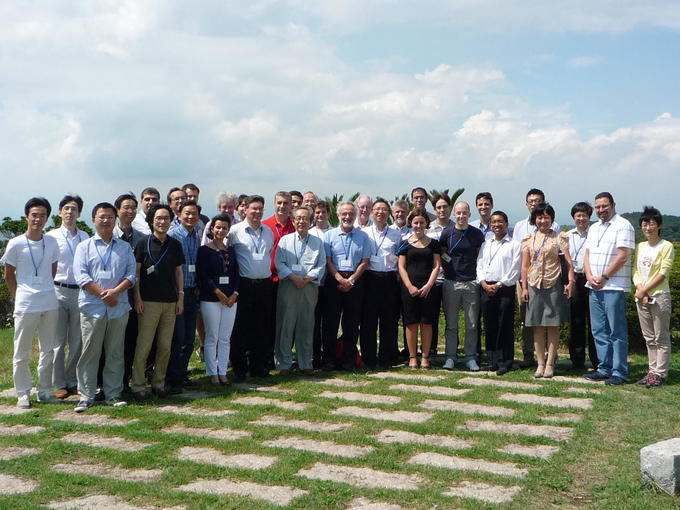NO.027 Engineering Adaptive Software Systems (EASSy)
September 9 - 12, 2013 (Check-in: September 8, 2013 )
Organizers
- John Mylopoulos
- University of Trento, Italy
- Hausi Müller
- University of Victoria, Canada
- Yijun Yu
- Open University, UK
- Shinichi Honiden
- National Institute of Informatics, Japan

Overview
As software-intensive systems continue to invade all aspects of personal, business and social life, they are required to operate in ever more open and dynamic environments where the one constant is uncertainty. Coping with such uncertainty calls for systems that monitor their environment and adapt so that they can continue to fulfill their requirements. The problem of engineering such systems is being addressed in a number of research communities, including Software Engineering, Systems, Ubiquitous Computing, Service-Oriented Computing, Multi-Agent Systems, Robotics and more.
As a result of research efforts within these communities, there have been many proposals on how to engineer such adaptive systems. Some are policy/requirements-based, others biologically-inspired, still others focus on awareness as the key facility that leads to adaptivity. The main objective of the proposed workshop is to bring together some of the authors of these proposals so that they can compare and contrast their respective approaches. In the process, we hope that participants in the workshop will go away with a better understanding of what ideas work, and under what circumstances. Some of the more specific issues to be discussed at the meeting include:
- How do we engineer adaptive software systems? What are the concepts, tools and techniques that can support requirements elicitation, architectural design and implementation of such systems?
- How do we reengineer legacy software systems in order to turn them into adaptive ones?
- Comparative review of adaptation mechanisms in Robotics, Multi-Agent Systems, Software Engineering, Socio- Technical Systems, Ubiquitous Computing, etc.
- Usability issues for adaptive software systems. How do we ensure effective human interaction with complex software systems that have adaptive components?
- Evolution of adaptive software systems. How do deployed adaptive systems evolve? How can we ensure convergence and stability for such systems?
- Evolution and control of systems-of-systems, where each component system has its own requirements and its own adaptation mechanism. How do we ensure convergence, stability and coherence for such systems-of- systems?\
- Runtime models: most of the approaches to adaptivity are model-based in the sense that they deploy models of system requirements and the domain to support monitoring, diagnosis and compensation in the case of failure. How are such runtime models different from their design counterparts? How do we reason with runtime models to support adaptation functions, i. e., monitoring, diagnosis and compensation?
- How do we prevent failures for such systems through run-time reasoning mechanisms? Since such mechanisms are inherently intractable, how can we support incremental run-time reasoning that predicts and/or prevents failures?
Workshop format
The four-day EASSy workshop will be held at the Shonan Village Center near Tokyo. 20 key participants will be invited to deliver position statements addressing a comprehensive approach to adaptive software system engineering. We envision sufficient time for discussion after each statement, e.g., 1 hour for each presentation slot, including 20-30 minutes for a statement, with 30-40 minutes of follow-up discussion. We plan to invite another 20 more junior participants who will contribute to and benefit from the discussions without having their own presentation slot. We expect that in many cases these will be junior members of groups represented by a senior researcher in the workshop.
As a deliverable for the workshop, we envision a follow-up special issue in an international journal, where workshop participants and the community-at-large will be invited to contribute original papers presenting comprehensive approaches to the engineering of adaptive software systems. The organizers hope that such a collection of papers will offer an authoritative account of the state-of-the-art on adaptive software systems and will guide future research in this fast-moving research field.
